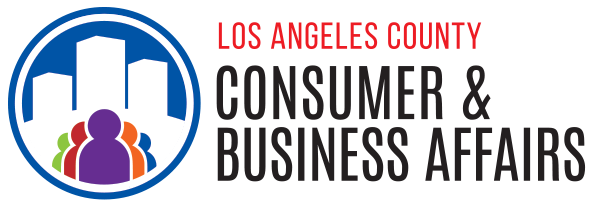Fires, floods, earthquakes, and other disasters are common in Southern California. After a disaster, it might be difficult to know who is there to help and who might want to take advantage of the situation. Consider the following tips to avoiding being taken advantage of.
AVOID SCAMS
Price Gouging
If the government declares an emergency, affected consumers have additional consumer protections against price gouging. See our Price Gouging tipsheet for more information. If you suspect price gouging, report it using our online tool: stoppricegouging.dcba.lacounty.gov.
Bogus Charities
Beware of telemarketers, door-to-door salespeople, and junk e-mails asking for donations to bogus disaster charities. Many bogus charities use names that sound like the real ones. Don’t be fooled. Give only to charities you know. Avoid people who will not give you their name, phone number, or written materials. Never give money to people sent to your home to pick up cash. Be suspicious of out-of-state groups, especially if their only address is a P.O. Box. Contact the Attorney General’s Office Charity Registration at (800) 952.5225 to find out if a charity is real.
Phony “Disaster Officials”
Crooks might show up after a disaster and claim to be from a government agency. They pressure you to pay for expensive, unneeded repairs. They may also claim to be brokers, and if you pay a “processing fee,” they will get you a check from FEMA or other government agencies. Don’t be fooled. Real disaster officials carry proper identification. If someone claims to be one, ask to see their ID. Call your local police department to report phony “government officials.”
Water Testing Scams
Bogus firms may try to get you to buy expensive, useless water filters. They offer to test your water for free and claim your water is bad. Don’t be fooled. Contact your water company or the County Environmental Health Department to find out if your water is bad. The water company’s number is on their monthly bill. Contact the Department of Public Health: Environmental Health at (888) 700-9995.
BUYER BEWARE
Contractors and Home Repairs
Contractors in California must be licensed if they charge you $500 or more for repairs. Contact the Contractors State License Board at (800) 321.2752 to find out if a contractor has a valid license, or if people have complained against them.
After a disaster, do not be rushed or pushed into signing a contract for repairs. Before you choose a contractor, get several bids, and make sure all verbal promises are in the written contract, including materials to be used, costs, and the completion dates.
If the total cost for materials and labor is $500 or more, the contractor can charge you a down payment of only $1,000 or 10% of the total cost, whichever is lowest. Do not make the final payment until the contractor completes the work, pays his workers, and the city inspectors approve the work.
Public Insurance Adjusters
You may be contacted by someone known as a public insurance adjuster. Public insurance adjusters do not work for your insurance company. You can hire them to work on your behalf and help you negotiate a settlement with your insurance company. They usually charge a fee of 10% of the insurance claim proceeds you receive.
If you choose to hire a public insurance adjuster, then you should do your homework to select the right one. They must be licensed by the California Department of Insurance and have a bond. Check their references and ask about their work experience. For more information, contact the Department of Insurance at (800) 927-4357 or check their online database.
Moving Companies
Moving companies must be licensed by the Bureau of Household Goods and Services. Before you hire a moving company, visit www.bhgs.dca.ca.gov or call (916) 999-2041 to check whether the company has a valid license, or if people have complained against them.
Door-to-Door Sales
If a person sells you something at your home for $25 or more, you have the right to cancel the contract within three days and get a full refund. The salesperson must tell you of your 3-day right to cancel and give you a cancellation form. You can cancel for any reason, but you must do it in writing. Make sure you mail your cancellation notice before your right to cancel expires. To protect yourself, send the cancellation notice by certified mail and ask the Post Office for a return receipt.
Advance-fee Loans
Following a disaster, you might need a quick loan to rebuild your home. Don’t be tempted by offers of “guaranteed” loans that require costly advance fees in order to get them. If you use one of these companies, you may never get a loan or see your money again. Protect yourself. Deal only with licensed lenders.
Updated Dec. 20, 2018

